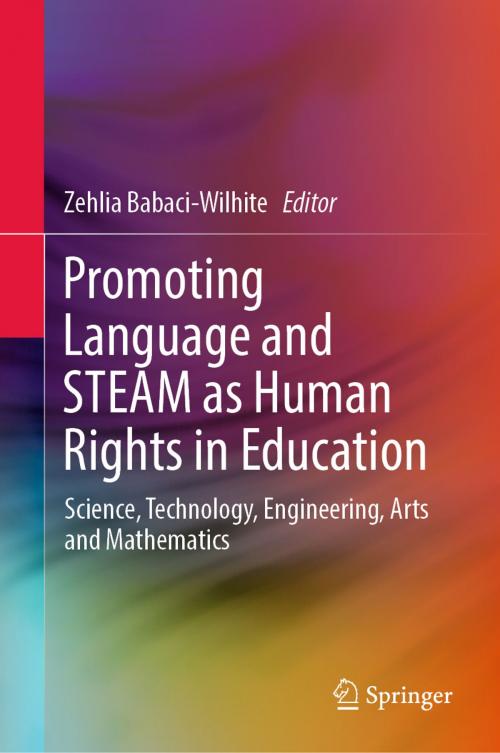Promoting Language and STEAM as Human Rights in Education
Science, Technology, Engineering, Arts and Mathematics
Nonfiction, Reference & Language, Education & Teaching, Teaching, Language Experience Approach, Educational Theory, Educational Psychology, Language Arts| Author: | ISBN: | 9789811328800 | |
| Publisher: | Springer Singapore | Publication: | December 13, 2018 |
| Imprint: | Springer | Language: | English |
| Author: | |
| ISBN: | 9789811328800 |
| Publisher: | Springer Singapore |
| Publication: | December 13, 2018 |
| Imprint: | Springer |
| Language: | English |
This book argues that integrating artistic contributions – with an emphasis on culture and language – can make Science, Technology, Engineering and Mathematics (STEM) subjects more accessible, and therefore promote creativity and innovation in teaching and learning at all levels of education. It provides tools and strategies for managing interdisciplinary learning and teaching based on successful collaborations between researchers, practitioners and artists in the fields of the Arts and STEM subjects. Based on contributions by educators, scientists, scholars, linguists and artists from around the globe, the book highlights how we can demonstrate teamwork and collaboration for innovation and creativity in STEAM subjects in the classroom and beyond.
The book reflects the core of human rights education, using local languages and local knowledge through art as a tool for teaching human rights at school, and bringing to light questions on diversity, ecology, climate change, environmental issues, health and the future of human beings, as well as power relations between non-dominant (minorities) and dominant (the majority) groups in society.
This book argues that integrating artistic contributions – with an emphasis on culture and language – can make Science, Technology, Engineering and Mathematics (STEM) subjects more accessible, and therefore promote creativity and innovation in teaching and learning at all levels of education. It provides tools and strategies for managing interdisciplinary learning and teaching based on successful collaborations between researchers, practitioners and artists in the fields of the Arts and STEM subjects. Based on contributions by educators, scientists, scholars, linguists and artists from around the globe, the book highlights how we can demonstrate teamwork and collaboration for innovation and creativity in STEAM subjects in the classroom and beyond.
The book reflects the core of human rights education, using local languages and local knowledge through art as a tool for teaching human rights at school, and bringing to light questions on diversity, ecology, climate change, environmental issues, health and the future of human beings, as well as power relations between non-dominant (minorities) and dominant (the majority) groups in society.















